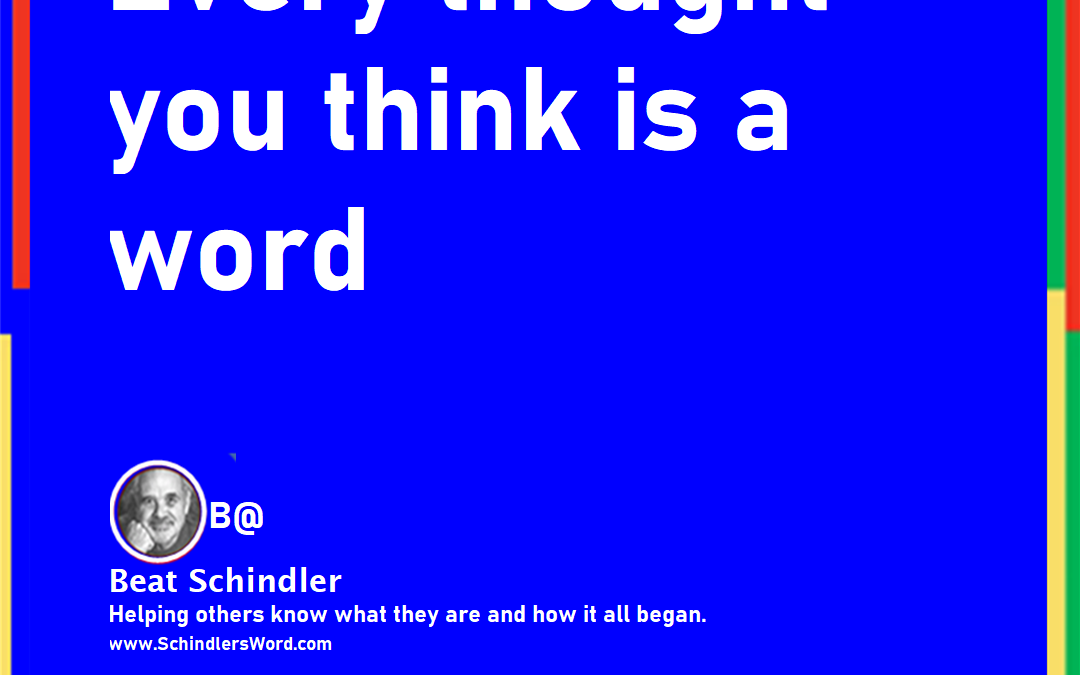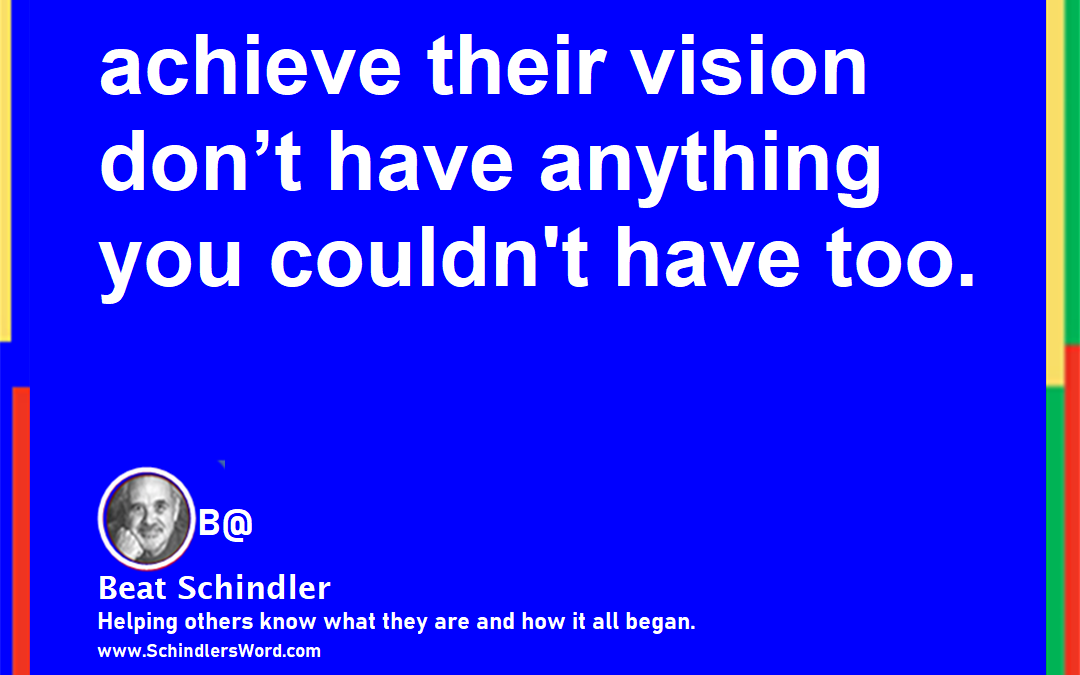by Beat Schindler | Jul 18, 2024 | Words, You
A thinking model helps you decide what’s best for you. An outstanding thinking model knows that logic is based on the Greek logos.Had logos been translated, it would now be wording and more English word-users would know what they’re doing. What can be denied...

by Beat Schindler | Jul 16, 2024 | Words, You
Every thought you think ends with a word — the word you think best co-responds to what you’re about to say, in self-talk or aloud makes no difference. But that’s not all. Every thought you think also begins with a word. That’s because you have a word for everything...
by Beat Schindler | Jul 16, 2024 | Words, You
Every thought you think is a word Every thought you think ends with a word — the word you think best co-responds to what you’re about to say, in self-talk or aloud makes no difference. But that’s not all. Every thought you think also begins with a word. That’s because...

by Beat Schindler | Jul 13, 2024 | Words, You
The word-users that achieve their vision know that vision is no different to every other word they have a word for, defeat the odds, keep going when the going gets tough, which it will, become famous eventually, and don’t have anything you couldn’t have, too. The only...
by Beat Schindler | Jul 13, 2024 | Words, You
Word-users that achieve their vision don’t have anything you couldn’t have too. The word-users that achieve their vision know that vision is no different to every other word they have a word for, defeat the odds, keep going when the going gets tough, which it...

by Beat Schindler | Jul 12, 2024 | Words, You
Where is fancy bred, in the heart or in the head? The “Where is fancy bred, in the heart or in the head?” is a Shakespeare quote. As happens with many Shakespeare quotes, the word-users agree with what the great William says, is how it usually works. Of course, “Where...


